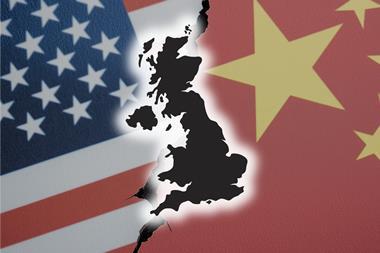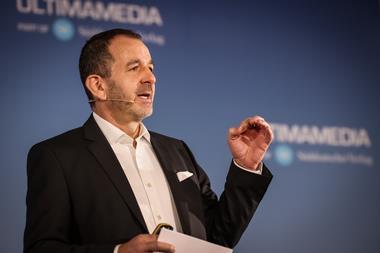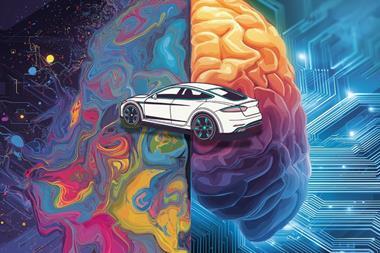
The mass production of electric vehicles (EVs) could have enormous impacts on the automotive industry. With economies of scale comes cost reduction - and the high upfront price of models currently on the market has been slated as one of the most influential factors on their low uptake to date.
Tesla has marketed its Model 3 as an affordable, mass-market car that has a range of up to 310 miles on a single charge. The company has now hit an important milestone - making 5,000 units in one week.
Overcoming challenges
A recent article from Bloomberg quotes an email sent from Tesla CEO Elon Musk to his employees, in which he states that the 5,000 unit target had been achieved.
“We did it!! What an incredible job by an amazing team. Couldn’t be more proud to work with you. It is an honor. The level of dedication and creativity was mind-blowing. We either found a way or, by will and inventiveness, created entirely new solutions that were thought impossible."
He referred to a tweet that he posted on 16 June 2018, which included a photo of a Model 3 rolling off a new assembly line. The line, Musk said, was built in "3 weeks with minimal resources" and housed in a tent. He also recalled transporting "entire production lines across the world in massive cargo planes" in order to hit the production target.
"Not only did we factory gate over 5,000 Model 3’s, but we also achieved the S & X production target for a combined 7,000 vehicle week!" Musk continued. "What’s more, with the widespread productivity gains throughout Tesla and the new production lines spooling up, we are on track to reach 6K/week for Model 3 next month. I think we just became a real car company..."
Raising the volume
Speaking to AMS, Kevin Mak, Senior Analyst at Strategy Analytics, provided his thoughts on the milestone that Tesla has achieved, and the implications it could have on the wider market.
While he thinks making 5,000 units a week of the Model 3 is an important step, Mak believes that the EV maker should adapt its strategy in order to make more: "I do believe the tent outside the Fremont assembly plant has something to do with raising production volumes, as well as increased automation from Grohmann Engineering - the German company Tesla bought in May 2017 - and Perbix in November 2017. But I still think that Tesla should tap into the Tier 1 supply chain in order to get vehicles out the door more quickly and more cost effectively, and I don’t think Tesla needs complicated door handles and its own design on each and every component on the car."
Aside from allowing it to ramp up production volume, Mak suggests that outsourcing some of this responsibility to other companies would allow Tesla to focus on other, vitally important areas such as quality.
"There have been reports on dodgy build quality, and that will impact on the bottom-line (warranty repair costs) and on reputation," Mak noted. "Not surprisingly, there is the temptation to cut corners to meet production volume targets, which can hopefully be addressed soon. I’ve also heard rumours that those consumers with pre-orders have been “persuaded” to go for higher spec variants – e.g. variants with a longer range – or they’ll be kept waiting for longer, in order to boost profit margins at loss-making Tesla."
That said, Mak admitted that "we need some more time" before judging Tesla on its ability to meet pre-orders for the Model 3. This is due to the fact that it is venturing into the unknown - namely, building an affordable EV for the masses that has a decent range, is safe and has numerous in-vehicle functions.
At the launch of the Model 3 back in July 2017, Musk stated that Tesla had received over 115,000 orders during the four hours leading up to the event. Reports suggested that the car was the most pre-ordered model of all time.
Activity in China
While Tesla has long been seen as the flag-bearer for electrification in the automotive industry, the competition is heating up as many other companies are looking to make the mark in the segment. The US-based market consultancy firm AlixPartners release an Automotive Electrification Index every quarter in order to identify progress in the segment. Tesla has previously dominated the leaderboard in terms of electric kilometres sold, but has lost ground in the latest few reports.

They suggest that the electric range sold by Tesla grew by 34% in 2016 and 42% in 2017, but the electric range sold by BAIC rose by 2016% in 2016 and 130% in 2017. GM - another company looking to tackle the mass production of affordable EVs - also outperformed Tesla in 2016 with its electric range sold growing by 104%.
"For a long time Tesla was a leader in the market, and priced its vehicles as such," stated Andrew Bergbaum, automotive expert and managing director at AlixPartners. "However, as the traditional global giants and high growth Chinese manufacturers start to add significantly to their portfolios this is no longer the case."
Tesla is also reportedly attempting to establish a manufacturing base in China as it hopes to take advantage of the world's largest EV market. The company revealed plans for a facility in Shanghai at its annual shareholder meeting on 5 June 2018.
For more information on the EV market, please see our 2018 Electric Vehicle supplement.







































